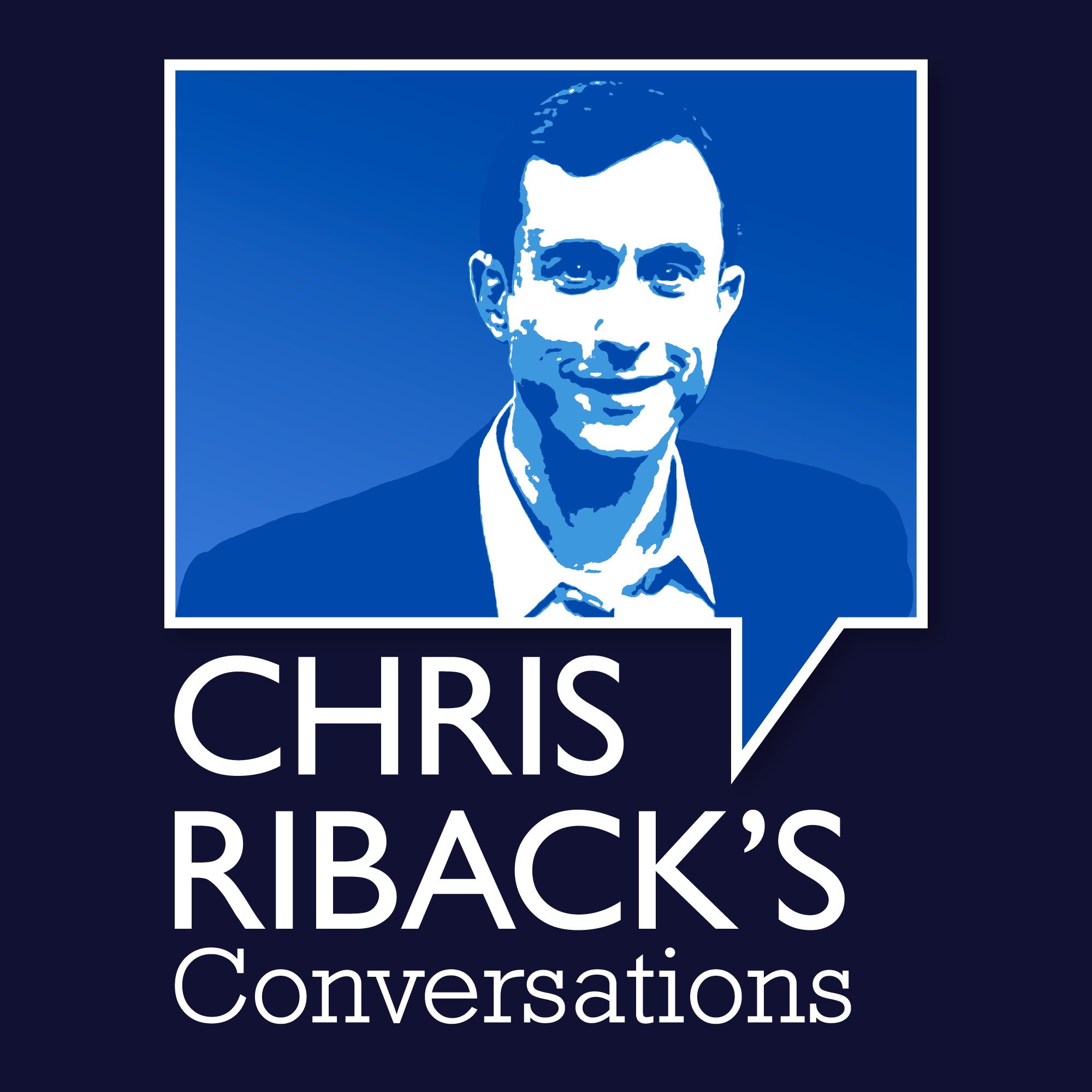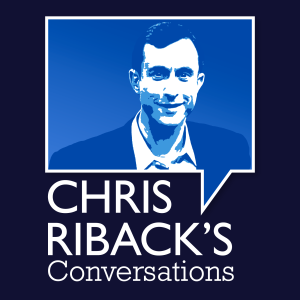
293.5K
Downloads
176
Episodes
Engaging smart thinkers on issues of the day. Subscribe for newsletter & show notes at chrisriback.com (podcast formerly "Political Wire Conversations")
Engaging smart thinkers on issues of the day. Subscribe for newsletter & show notes at chrisriback.com (podcast formerly "Political Wire Conversations")
Episodes

Wednesday Jun 25, 2014
David Wasserman, Cook Political Report
Wednesday Jun 25, 2014
Wednesday Jun 25, 2014
For anyone who thought Midterms 2014 was only about the Senate and which party will take control, we recently got our wakeup call. Congress has another chamber, as well.You may have heard: House Majority Leader Eric Cantor lost his primary race to a Randolph-Macon College Economics Professor, David Brat. And since that shock – the first primary challenger to beat a sitting House Majority Leader since the position began in 1899 – the questions, politics and outlook for this season have all changed.Should we be paying more attention to the House? Should we be paying more attention to the Tea Party? What can one Congressional District in Northeastern Virginia tell us about voter anger in America and voter action as November elections arrive?David Wasserman is U.S. House editor for the must-read Cook Political Report. He has also worked on numerous political campaigns, including in Iowa, South Dakota, and Virginia.

Friday Jun 20, 2014
Doug Schoen, Democratic pollster
Friday Jun 20, 2014
Friday Jun 20, 2014
Today’s issue, who’s running harder against President Obama – Republicans or Democrats? The question is only partly exaggerated.
From criticism on “who lost Iraq” to the handling of the Army Sgt. Bowe Bergdahl prisoner exchange to even the environment. And, of course, there’s always Obamacare.
So how legitimate is this criticism? Is President Obama – and his low approval ratings in various key states – weighing down the team? Should Democrats be more constructive and supportive of their chief?
Doug Schoen is one of the most influential Democratic campaign consultants for over thirty years. He served as a political adviser and pollster for President Bill Clinton from 1994-2000, and has worked with mayors, governors and heads of state in more than 15 countries. He is a founding partner and principle strategist for Penn, Schoen & Berland and widely recognized as one of the co-inventors of overnight polling.

Thursday Jun 19, 2014
Philip Howard, author of "The Rule of Nobody"
Thursday Jun 19, 2014
Thursday Jun 19, 2014
For anyone who looks at our government today and says, “Everything seems great to me. No room for improvement here,” well, today’s conversation is not for you.Now that that person has stopped listening, here’s what the rest of America can learn from today’s talk: The problem is even worse that you thought. While most discussion on fixing government deals with the politics and the posturing, we instead might want to focus on something much more difficult to fix: Nobody is actually in charge. A mountain of overlapping, contradictory and often unnecessary laws, regulations, oversight committees and more seem designed specifically to block responsibility and accountability – and ensure the status quo.So how did we get here? How can we get out? And where is the leadership?Few think about the need to simplify and clarify American government, policies and laws more than Philip K. Howard: Lawyer, author and thoughtful critic of the areas of our political system many others seem to ignore. He is Founder & Chair of Common Good and his new book is “The Rule of Nobody: Saving America from Dead Laws and Broken Government.”

Friday Jun 13, 2014
Ken Vogel, author of Big Money
Friday Jun 13, 2014
Friday Jun 13, 2014
At first glance, today’s conversation might seem as surprising as dog bites man: Money has taken over our political process. I know – not a shocker. But what if I told you that, quite possibly, our next President will be chosen by 5 or 6 of the richest people in America? Or a dozen? Certainly no more than 100?It’s hardly an exaggeration. From the historic growth of PACs to the Supreme Court’s 2010 Citizens United decision through now the increasing mega-wealth of the top .01 percent, the role of the super rich in politics has grown exponentially. Control of America’s future has shifted from political parties to power players – individuals who bankroll campaigns and collect politicians like sports franchise. And this is no fantasy league.What does this shift in money and influence mean for our political future? Who are these individuals and what are they doing to our democracy?While you may know some of the names – Koch or Adelson or Soros or Katzenberg – you likely don’t know them all.Kenneth Vogel, however, does. Ken covers the confluence of money, politics and influence for Politico. He’s also author of the new must-read book “Big Money: 2.5 Billion Dollars, One Suspicious Vehicle, and a Pimp—on the Trail of the Ultra-Rich Hijacking American Politics.”

Sunday Jun 08, 2014
Joe Lockhart, former White House Press Secretary
Sunday Jun 08, 2014
Sunday Jun 08, 2014
The White House recently announced a change at the top. Not the very top, of course, but as head of the Press Office. Jay Carney is stepping down; Josh Earnest is stepping up.The White House Press Secretary is, quite often, America’s face to the world. And speaking for the President, sometimes several times a day, the Press Secretary faces many masters – the Commander in Chief, the media, and of course, the American people.So how to balance the competing pressures: For example, protecting information responsibly vs. the public’s right to know? Particularly in these highly partisan times – with POW swaps, VA scandals, Midterms, Obamacare fights and more – how do you balance policy with politics?Few in the role had to walk that line more regularly Joe Lockhart, who served as President Clinton’s Press Secretary. Today he is a Founding Partner and Managing Director of The Glover Park Group, which offers media, communications and political strategy to global corporations and non-profits. He also served as Vice President of global communications for Facebook.

Thursday Jun 05, 2014
Nate Cohn, The Upshot/New York Times
Thursday Jun 05, 2014
Thursday Jun 05, 2014
Forget the Koch Brothers or Super PACs or even President. The most-watched player in the 2014 Midterms just might be a computer program called LEO.LEO is the always-on, data-crunching, poll-adjusting Senate forecasting model used by the New York Times. Each day LEO takes the latest polls and historical data from around the country, blends in other information like fundraising and national polling, and then simulates all 36 Senate races – 250,000 times. And from that, each day LEO speaks about which party will win the Midterm’s grand prize – U.S. Senate control.So following several big weeks of primary voting, what does LEO have to say… and why should we believe it?Nate Cohn is a reporter at the New York Times’ new hot spot – The Upshot – where he covers elections, polling and demographics…

Tuesday Jun 03, 2014
Mike McCurry, former White House press secretary
Tuesday Jun 03, 2014
Tuesday Jun 03, 2014
Throughout American history, the balance of faith and politics has helped define who we are. And that definition hasn’t always been totally clear.Examples of extreme positives and negatives have dominated our headlines – from the clergy’s role in driving the Civil Rights Movement to the abortion wars that have ended in murder in the name of faith to today’s debates on same sex marriage.The Constitution addresses the topic in Articles 1 and 6. Thomas Jefferson addressed it with his phrase noting “the separation of church and state.” Candidates today continue to address it, from the far left to the Tea Party right.So what is the proper role of faith in politics and government? Where should the balance sit? Will we ever reach a place of common ground – indeed, should we ever reach a place of common ground?Few have thought about these questions more than Mike McCurry. We all know him, of course, as President Bill Clinton’s White House Press Secretary. Today, in addition to serving as a Partner at Public Strategies Washington, where he offers communications strategy for companies and non-profits, Mike is a Distinguished Professor of Public Theology at the Wesley Theological Seminary. He serves, too, as co-chairman of the Commission on Presidential Debates

Thursday May 29, 2014
Michael D. Shear, White House Correspondent at the New York Times
Thursday May 29, 2014
Thursday May 29, 2014
You think it’s hard to manage your life? Your schedule runs at the mercy of your boss or your clients or spouse or kids… Well, I’m pretty confident your life is smooth sailing compared to today’s guest.Michael D. Shear is White House Correspondent at the New York Times. In other words, when the most powerful person in the world decides to go to Hawaii or Capitol Hill or Afghanistan or the Washington, D.C. streets to buy a hot dog, you’ve got to be ready to drop everything and go. The tradeoff, of course, is spectacular – a front row seat to history, getting to know the President’s personality and, to some extent, his thinking.What’s that tradeoff like? What does life become when you cover the President – particularly this President. And from the VA scandal to CIA name leaks to Obamacare to Midterms, given the front-row vantage point, what can we learn about some of the major issues and politics facing the White House today?

Thursday May 29, 2014
Jonathan Alter, executive producer of Alpha House
Thursday May 29, 2014
Thursday May 29, 2014
It’s no secret that trust in government and politicians continues to chill. From a recent Harvard poll of Millennials to earlier surveys of older voters, the question for Midterms 2014 may not be whom do we trust, but do we trust at all?But as our trust in real life politics may fall, our delight in fictional politics – hit television shows and other video programming – continues to rise. Is there a connection? And if so, what might that connection – and the role of trust – play not just for Midterms this year, but as our voting focus soon turns to 2016.Few think, write, speak and executive produce more about these issues – and in more forms of media – than Jonathan Alter. He has been an Award-winning author, reporter, columnist and television analyst. Three of those books became New York Times bestsellers, most recently: "The Center Holds: Obama and His Enemies.” And now he is an executive producer of "Alpha House," a political comedy created by Garry Trudeau and starring John Goodman and others and available through Amazon.

Friday May 23, 2014
Jon Ralston, Ralston Reports
Friday May 23, 2014
Friday May 23, 2014
As the battle for US Senate control continues to dominate Midterms 2014, perhaps the most influential and controversial senator in the process is not even running.It’s hardly an exaggeration that Majority Leader Harry Reid is the key Senate player in the races – spoken and unspoken. Whether it’s a Republican candidate running against his name or a Democrat benefitting from Reid’s Senate Majority PAC, he seems to be everywhere.So how much power does Harry Reid have? He’s not known as a great campaigner, and after barely holding on to his seat in 2010, how much confidence can he have going forward? And what about race for Nevada Governor, which might be less about the governor’s mansion and more about setting up Reid’s next major challenge. After all, Reid’s reelection campaigns have been no sure bet.The closest thing to a sure bet in Nevada is a political report from Jon Ralston, creator of the eponymously named Ralston Reports, which is both his nightly television political show that runs on all three of the state’s NBC affiliates, as well as the name of his website. He also publishes the premium newsletter, RalstonFlash. Jon has covered politics in the Silver State for more than 25 years; Politico named him one of the top 50 politicos.
